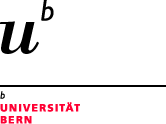home universität > IKAÖ
Interfakultäre Koordinationsstelle für Allgemeine Ökologie (IKAÖ) |

Forschung
Workshop of the Discussionforum North-South
Solothurn/Switzerland, 3 December 1999
Formulation of „Messages“ and „Theses“:
Questions of practical relevance
Introductory Remark:
In view of the exchange with the end-users, the findings of the debates will be compiled in the form of „messages“ or „theses“. This compilation will be based on questions of practical relevance, that have been proposed by end-users.
1. Participation in local resource and conflict management
- How can (1) the complexity of local environmental management and corresponding
participative approaches and (2) the role and necessity for participation
of all segments of the local society be communicated?
- Local Governments and administrations are sceptical towards new forms of participation (key word „shadow government“). What are the aims of such new forms of participation in a direct democracy? Who acts as the sovereign power? Who initiates the processes? What roles fall to the state and to its institutions? What institutional reforms might be necessary?
- „Participation without knowledge leads to dilettantism“: How can the stakeholders acquire the knowledge required in order to develop feasible solutions and to decide upon them?
- What are the expectations of the different actors (e.g. initiators) towards new forms of participation, what are their interests, their aims?
- Participation would include even those sections of the society that are weak in social, political or economic terms. How have participatory approaches to be conceived and designed in order to allow such sections to exercise their rights?
- The local „private sector“ does not get involved easily in such open, often long-term oriented processes. How have participatory approaches to be conceived and designed in order to have the private sector interested and participated?
- Often, such processes produce visible results mid-to long term only. The motivation of the participating population depends, however, on quick results. How can the motivation be maintained over the time periods required?
- New forms of participation are costly. In the city of Basel, such a „Werkstatt“ costed around Sfr. 1 Mio. What is the „value added“ of such processes, in social, economic and financial terms?
2. Sustainable resource management: the role of knowledge production and reproduction in the process of innovation and adaptation
- How can agencies and organisations involved in international co-operation promote knowledge management (production and reproduction/tranfer) at the level of the resource-users and their institutions in view of sustainable resource management (including the conservation of the genetic diversity) and sustainable livelyhoods, namely in situations of rapid and fundamental (social, economic, political) changes?
- What complementary activities (training, institutional reforms, etc.) would be required on upper societal levels?
- What are most promising and effective approaches for international co-operation to support knowledge transfer? What kind of institutions prove effective? What are the roles of formal and informal ways respectively?
- What approches promote the interindividual knowledge transfer, what approaches are required to foster and support knowledge transfer on the level of (local) organisations?
Interfakultäre Koordinationsstelle für Allgemeine Ökologie (IKAÖ) der Universität Bern (1988-2013)
© Universität Bern
29.09.2005
| Impressum
